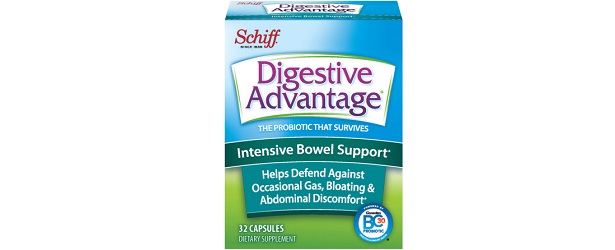
Natural Supplements: Can They Help Your IBS?
IBS is an acronym that stands for irritable bowel syndrome. It is a disorder in the large intestine and symptoms include diarrhea, constipation or a mix of both, along with gas, bloating and stomach pain. IBS doesn’t cause any lasting harm to your intestines, unlike other large intestine and colon disorders like Crohn’s disease or Celiac. IBS is extremely common, yet is undiagnosed in a large amount of the population. It is most common in young women between the ages of 18 and 45. Managing your IBS symptoms could be difficult, but possible. You should examine all aspects of your life including your diet, possible stressors, and consider adding a medication.
What Should You Eat To Avoid Flare-Ups?
IBS symptoms can worsen after eating certain foods: this is called a flare-up, which can last for a few hours to a few months. While symptoms may vary depending on the type of IBS you have, your diet can be a consistent tool with which you can help regulate your bowel.
If your symptoms include loose stool with mucus, you can eat a high-fiber diet to help ease your symptoms. High fiber foods include:
- whole grains
- root vegetables like potatoes
- legumes
- seeds
- beans
- lentils
- chia seeds
If your symptoms include constipation and gas, that might mean you want to eat a low-fiber diet. Low-fiber diets add more soluble fiber to your diet. Soluble fibers are kinds of food that dissolve and mix easily with water and turns into a kind of soft gel.Low-fiber foods include:
- oatmeal
- most vegetables
- fruits
Peppermint Oil: Easy On Your Stomach
Besides medications, consider adding a supplement to help manage your IBS symptoms. Studies have found that peppermint oil has many health benefits that may relieve some symptoms of IBS.
Peppermint oil is an essential oil and it has been used for medicinal purposes for a long time – it is actually recorded as one of the oldest herbs used for healing the body. It is a natural oil derived by steaming the top leaves of the peppermint plant, and has been shown to act as an antibacterial, ease pain, and even decrease fungus growth. Peppermint contains high quantities of menthol, which is shown to help with infections, skin diseases, and intestinal issues. Taking peppermint oil has shown to relieve indigestion, nausea, diarrhea and constipation.
Administering Essential Oils
Unlike some supplements that can be swallowed, peppermint essential oil cannot be taken orally. Instead, you can pour some oil into a diffuser, use it as a massage oil, or simply inhale it. If you are using it for a skin cream, remember to mix other oils into it so the menthol will not overpower and harm your skin. Heartburn is a common side effect of ingesting peppermint oil.
Luckily, there are supplements on the market that help relieve IBS symptoms that contain peppermint oil as well. Those are safe to swallow and research have shown the peppermint greatly benefits someone suffering from IBS.
TOP 5
IBSTreatments |
|||||
| IBS Clear | BioGanix BioZyme Digestive Enzymes | Nature's Sunshine Food Enzymes | Herbs of Gold IBS Advanced | Kijimea IBS | |
|---|---|---|---|---|---|
| 1 | 2 | 3 | 4 | 5 | |
| Price (1 bottle) Price (6 bottles) best value |
$49.95 $139.70 |
$45.95 $183.80 |
$39.95 $239.70 |
$39.95 $239.70 |
$42.94 $257.64 |
| Overall Rating | 98.7% | 82.00% | 71% | 64% | 61% |
| Effectiveness |





|





|





|





|





|
| Speed of Results | Extremely Fast | Fast | Good | Average | Slow |
| Quality of Ingredients | Premium | Good | Good | Average | Average |
| Customer Satisfaction Evaluation | 99.50% | 81% | 79% | 72% | 68.2% |
| Safety Evaluation | Safe for Use | Safe for Use | Safe for Use | Safe for Use | Safe for Use |
| Customer Service Rating |





|





|





|





|





|
| Reorder Rate | Highest | Good | Average | Good | Average |
| Return Policy | Risk Free | Unused | Risk Free | Unused & Unopened | No |
| Success Rate | 99.60% | 83% | 77% | 71.20% | 69.2% |

 Subscribe Now
Subscribe Now











